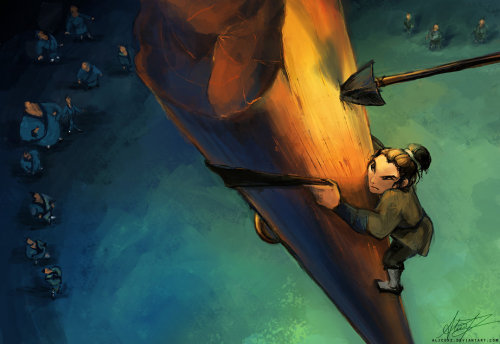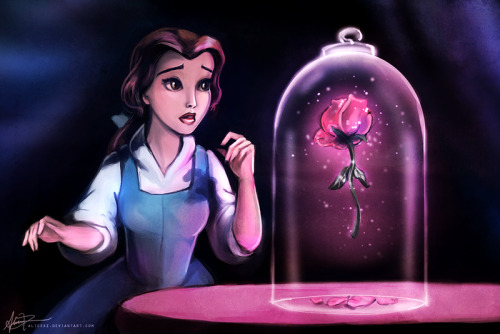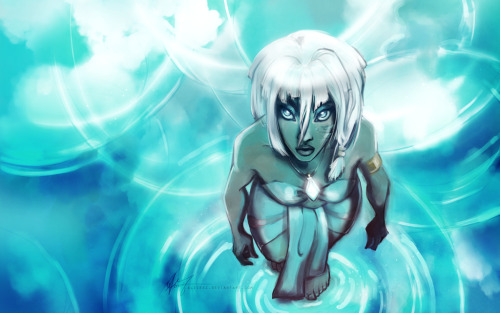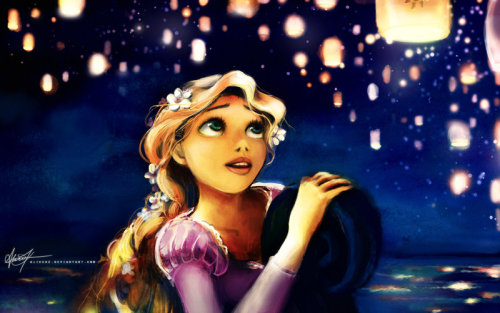Sometimes You’re Just An Introverted Loser Who Sits Alone In Your Room With A Cup Of Tea And A Book,

Sometimes you’re just an introverted loser who sits alone in your room with a cup of tea and a book, has fantasies about morally grey fictional characters, is severely touch starved with a completely fucked up sleep schedule and slowly declining mental health.
More Posts from Arieso226 and Others
Whatever you’re thinking, think bigger. What got you here won’t get you there.
Haitian Revolution
NO. 1
As history points out, the French Revolution sparked things like Freedom, Equality, and Fraternity, into the hearts of oppressed peoples, and birthed the Haitian revolution, where enslaved peoples did not have to stay that way. Thoughts of freedom and a life of their own ran through the hearts of the large population of enslaved and free blacks on the island of Saint—Domingue, where they did not have to answer any longer to the white hierarchy and elite. The one leading man that helped change a revolt into a revolution that paved change to the island, was Toussaint Louverture. But who was Toussaint Louverture? How exactly did one person, who was also enslaved, become the leader of a revolution, and how did it change life?
NO. 2
The Haitian Revolution is such a widely popular topic to discuss and converse about is because a successful slave revolt against one the leading powers at that time, France, Spain and Britain, but mostly France, has never been done before. That, and it proved black people were not the primitive, lower species that the majority had deeply believed them to be, and Toussaint Louverture proved to be one of the most brilliant army generals to-be-rulers at that time. By scanning the map of the island, he was able to gain allies in the free black militia and the mulatto population, who were tired of being treated second-class. To go back to the quote, the Code Noir (Black Code), at the time legalized the most cruel, abusive and harsh treatment of slaves; if you ran, and you were caught, you would suffer dearly, and so would any slave you came into contact with by two folds. ‘’It forbid slaves from bearing arms, the assembly of slaves, and slaves trading or selling their own goods for a profit. It stated that slaves who struck their master or any free person were to be punished by death. It explicitly defined slaves as personal property.’’ The fact that King Louis XIV of France, put the Code Noir under effect and Louverture was able to defy it, and did it with his own army himself shows that his leadership was effective; and indeed, for in the capital of Haiti, Louverture is considered a hero and liberator for his people.
In American Political Science Review on Ulrich Bonnell Phillips, who was born on a southern plantation who is biased, showing a clear defense of slavery, particularly American slavery, and bases his experience on an economic study of American slaveholders and there sharecrops. He has made use of Southern newspapers and pamphlets, and some source materials, but has not made any effort to research ‘Negro’ sources, from which he claims are ‘dubious details’ anyway. The review last five pages, and explicitly states that the ‘Negro’ as a responsible person has no place in the book, and gives Louverture the term ‘criminal’ to suit his needs, and the needs of others. Half of the book implies historical facts, the treating of Africa and the slave trade and West Indian and American conditions while the other half is a series of essays on aspects of slavery—cotton crop, plantation economy, etc., and the other half is devoted to freedom and crime among slaves and slave codes. ‘The law is the law, and it should stay that way!’
NO. 3
According to Toussaint Louverture: A Black Jacobin in the Age of Revolutions , The man who would in later life be known as Toussaint Louverture himself belonged to the category of ‘creole; His father was Gaou Guinon, an African prince who was captured by slavers and endured the horrors of the Middle Passage across the Atlantic Ocean. As an enslaved child, Toussaint would have been known as Toussaint Breda, named after the plantation on which he was born. The actual details of his birth remain’s uncertain, but from his name he is associated with All Saints Day; his personal life, meaning his early childhood, is also uncertain. As Phillipe Girard comments, ‘retracing the childhood of a slave is an arduous task, not only because of the lack of archival traces, but also because such traces that exist tend to dehumanize the enslaved and deny their individuality.’
Toussaint, after rising to power, did not wish to surrender that power to Paris and ruled Saint Domingue as an autonomous entity. In 1801 he issued a Constitution for the island, which provided for autonomy and established Toussaint as governor for life, where he abolished slavery and aspired to put in place a multiracial society composed of blacks, whites and mulattos. When Napoleon Bonaparte came to power in France, he aimed to return the Caribbean colonies to their earlier profitability as plantation colonies. In 1802 he dispatched an expedition of French soldiers to the island, lead by his brother in law Charles Leclerc, to reestablish French authority and slavery. Leclerc arrested Toussaint and deported him to France where he was imprisoned in Fort de Joux, where he died on April 7, 1803. For a few months, the island lay under Bonaparte’s control, but the French soldiers fell victim to weapons and disease, and surrendered to the indigenous army in November 1803; On July 1, 1804, under Jean-Jaques Dessalines control, Louverture’s general, the colony, the first black republic, became known as Haiti.


Women Healers vs. Science
NO. 1
From the 16th century women were seen as healers, or the nurses, abortionists, counsellors, and midwives, whereas since the 19th century and onward male professionals have taken over the role. These roles today are seen as jobs, where the service is being paid for; before, under the tutelage of women, these roles were as a way of life. In healthcare, women are the majority, of course. But they are considered workers, (clerks, dietary aides, technician, maids), whereas the bosses of these industries are usually men. So what changed? What occurred for this major switch?
NO. 2
Women healers have always been the standard, history can attest to that fact. But unlike male doctors who care for the rich, and clung to untested doctrines, it was woman healers have cared for the sickly and the poor, and therein lies the problem. ‘‘The suppression of female healers by the medical establishment was a political struggle, first, in that it is part of the history of sex struggle in general. The status of women healers has risen and fallen with the status of women. When women healers were attacked, they were attacked as women; when they fought back, they fought back in solidarity with all women. It was a political struggle, second, in that it was a part of a class struggle. Women Healers were people’s doctors, and their medicine was part of a people’s subculture. To this very day women’s medical practice has thrived in the midst of this rebellious lower class movements which have struggled to be free from the established authorities. Male professionals, on the other hands served the ruling class—both medically and politically, with interests with advanced by the universities, the philanthropic foundations by the law.’’
NO. 3
So the change began when the terminology changed. When healing the sick was seen not as a testament to their abilities, but as witchcraft. In the age of witch-hunting, from the late early fifteenth to early sixteenth centuries, from Germany to England, which was also the age of feudalism and well lasted into the age of reason. Witches symbolized the political, religious and sexual threat against the Catholic and Protestant Church, as well as to the state, so the witch hunts were all a well organized and financed campaigns of violence against the female peasant population. ‘‘Women made up some 85% of those executed—old women, young women, and children. Their scope alone suggests that the witch hunts represented a deep—seated social phenomenon which goes far beyond the history of medicine. In locale and timing, the most virulent witch hunts were associated with periods of great social upheaval shanking feudalism at its roots—mass peasant uprisings and conspiracies, the beginnings of capitalism, and the rise of Protestantism. There is fragmentary evidence—which feminists ought to follow up—suggesting that in some areas witchcraft represented a female-led peasant rebellion.’’
NO. 4
Witches were seen as a rebellion not just of the Church, but from God himself. You see, witches consorted with the devil, and were therefore evil, and in the eyes of the Church, was derived through sexuality. Sexuality was always associated with women, and pleasure in sexuality was sin and evil, and her power was from sexuality. Even those who were good, and used her gifts of healing to help, were deserving of death, just as all witches deserved death. ‘‘Witch healers were often the general medical practitioners for a people who had no doctors, no hospitals, and were bitterly afflicted with poverty and disease. In particular, the association with the witch and the midwife was strong. When faced with the misery of the poor, the Church dogma that experience in the world fleeting and unimportant. The wise woman, or witch, had a host of remedies which had been tested in years of use. Many of the herbal use remedies developed by witches still have their place in modern pharmacology. They had pain killers, digestive aids and anti—inflammatory agents. The witch—healer’s methods were as great a threat( to the Catholic Church, if not the Protestant) her results, for the witch was a empiricist: She relied on her senses rather than on faith or doctrine, she believed in trial and error, or cause and effect. She trusted in her ability to find ways to deal with disease, pregnancy, and childbirth. Her attitude was not religiously passive, but actively inquiring. In short, her magic was the science of her time.‘‘
Where are the black tumblr users that are still active on here at? please REBLOG
Pre-Colonial Africa
The book ‘Pre-Colonial Black Africa’ written by Cheikh Anta Diop wrote the text entitled ‘’Pre-Colonial Africa’’ because no one has looked at the history of Africa before colonialism. Researchers tend to look at Africa afterward, and even more so the condition of what its people have survived against European oppression. (xi.) Until now…. the history of Black Africa has always been written with dates as dry as laundry lists and no one has ever tried to find the key that unlocks the door to the intelligence, the understanding of Africa. It is also used as a key discussion between the comparisons of Africa in Europe, and a finding at the interesting focus of Africa in each country, how different societies are and how they differ now, the usage of the caste system, and the ecosystem benefited each person, slave, chief, and noble.


He conducted his research thoroughly, by looking heavily into the societies of ancient Africa, their caste systems, and their hierarchies throughout each society in various countries and empires, like Ghana, Mali, and Songhai, the most powerful empires. The history of their empires, their politics, their religions, and their way of life is described in perfect detail, showcasing that Africa was not the primitive world in which everyone on the globe, including Europe and America, believes they are. The author explains that through intense research into the countries of Africa, their traditions, their beliefs, their politics, African, or black contribution could be seen in modern Europe, from Italy with the Moors, since they colonized it, to Britain; and that 2) yes, Africa was at a great disadvantage with Western colonialism, but that does not mean that Africa was a ‘backwater’, in a sense. (pg. 74) But, as you can well be imagined, such clans were far from being as primitive as one might offhand have thought: They were not without the after-effects of the earlier imperial epoch. That is why ethnologists, to their immense surprise, but without exception, always discover in the organization, but are more advanced; they often do not hesitate to attribute this to a phenomenon of degeneration, supposing that these populations, living today in so primitive a state, had in the past experienced some forgotten great period.

On pg.40, Diop researches briefly the Middle Ages, where knowledge relapsed enormously, but at the time of Charlemagne, the knowledge which had vegetated in the monasteries became vast, where it spread out to Ireland and England; then he talks about the Greeks and the Turks, especially Aristotle, the only Greek philosopher to be studied and was considered on the thinkers of the Middle Ages. Basically, a recalling of European politic-social evolution, and switches to a detailed comparative study on African politico-social organizations, and the second method is the citing Al Bakri and Ibn Khaldun concerning the empire of Ghana (tenth and eleventh centuries), and Battuta on the Empire of Mali (1352-1353). So, why did Africa and its imperial system not create a capitalistic system of their own? Different from Europe is that the meaning of the word, ‘capitalism’ is based on the idea of individualism. Africa, at the time, had no sense of that word.

Since there was a caste system held in support, there was no power struggle and no competition needed. The king and the little local lord knew that they owned slaves and that they ruled the entire country, the extent of which they knew perfectly well and whose inhabitants paid them a specified tax. Yet they never felt that they owned the land. The African peasant’s situation was, therefore, diametrically opposed to that of the serf bound to the soil and belonging, along with the land he cultivated, to a lord and master. There was no economic or sociologic reason for capitalism, since in Africa, poor or rich, the people had viable access to resources; From an economic viewpoint, Africa is characterized by abundance. Travelers of the precolonial era encountered no poverty there; according to the Tarikh el Fettach, the emperor of Ghana, seated upon a ‘platform of red gold,’ daily treated the people of his capital of ten thousand meals. Such material comfort resulted in an increase in demographic density scarcely imaginable today…Modern capitalism, wherever it may be found, is a European export and not the result of natural local evolution. It came to Africa with exploitation and usage of greed.


and just in case you thought she was lying...
The teachings of Henry Highland Garnet vs. Fredrick Douglass
Henry Highland Garnet didn’t come up with the best ideas to counteract slavery and resistance against it, as his ideas were mixed with violence that critics like Fredric Douglass opposed for fear that it would ignite rebellions across the states that African-Americans could not win or face bloody white backlashes. But, something that black leaders like Douglass didn’t understand is that the demand for equal rights by appeasing the dominant elitist through morality, will simply not work. A great black activist during this time, Martin DeLaney explains that appeasing the dominant society through morality and common decency will not work because you cannot force your morals, no matter how right they are on a people, group, or individual who are unwilling to listen or hear. In other words, it isn’t morality that holds the reins, it is power, and that is true no matter what century we’re discussing.

First, we should get to know who Henry Highland Garnet was ‘‘born a slave on December 23, 1815, in New Market, Kent County, Maryland, and escaped with his family in 1824, was the grandson of a captured Mandingo chief. Garnet’s early education was in a segregated school on Mulberry Street in Manhattan. In 1835, he was in attendance at the Canaan Academy, a New Hampshire School, that was destroyed by a racist mob. Garnet, like other abolitionists during the 1840s, was critical in his assessment of the various emigrationist programs. That process, however, was an evolutionary one.’’

One of his best quotes, ‘‘Neither God nor angels or just men, command you to suffer for a single moment. Therefore it is your solemn and imperative duty to use every means, both moral, intellectual, and physical that promises success….(in Woodon 1925, 1969), one of his most radical statements in regards to slavery. The speech, the earliest extant speech by a black man advocating violence in America, entitled ‘An Address to the Slaves of the United States, was delivered before the National Convention of Colored Citizens at Buffalo, New York, in 1862. Despite its significance of the speech and the speaker, Henry Highland Garnet is virtually unknown to students of American history’’. Garnet truly believed that the only way for slaves to gain their freedom from slave owners was to take it by force, by any means necessary, and Fredrick Douglass fiercely opposed such views, as he wanted to have all slaves be freed through non-violence and appealing to people’s sense of morality. The two went back and forth, Douglass wrote that educated men who followed Garnet’s ‘backwatered and destructive’ stance had no stomach for continuing the struggle against prejudice and ignorance in this country, and thus it was that they sought more congenial places so they could live 'peaceful lives'.

Nevertheless, Garnet inspired his people when it seemed like all was lost, a talent of his, as his voice was awe-inspiring, and people who were tired of being crushed under the weight of oppression who didn’t think non-violence was going to work, flocked to him during his weekly sermons. ‘‘There was something about his personality which few leaders possessed—the commanding presence which inspires courage and the will to fight through difficulties. In his personality were reflected the fire to genius of African chieftains who had defied the slave catchers and later rankled Southern bondage.’’


![The Lidérc [Hungarian Folklore]](https://64.media.tumblr.com/8b786c2eb3baf90966bade8bb2c7d913/6c10fb0625988ad8-5f/s500x750/b59248af1a83c1e9afc6f839e61deacc81c41b84.jpg)
The Lidérc [Hungarian folklore]
According to old Hungarian folklore, if you keep the first egg of a pitch-black hen warm under your arm until it hatches, the resulting chick will not be of a chicken but a lidérc. It will shapeshift into a creature closely resembling a human (but usually with one chicken foot) and will have sex with its owner, draining his life energy in the process. However, if the owner is a woman, the lidérc will suck her blood instead, which will cause diseases in the owner. In both cases, however, the creature will make a hoard of golden objects which it gets from an unknown source, making the owner rich. It will also perform labor and tasks that you ask it to do. Should you want to get rid of your lidérc, you have to ask it to perform an impossible task (like ‘tie a knot in a cloud’ or ‘empty all the water in this well using only a sieve’) in which case it will become so frustrated that it dies on the spot.
Another version of the story claims that the lidérc is a very tiny humanoid creature that may sometimes be found in your pocket, or in boxes or bottles. If you do own one of these, it is said your soul is taken by the creature, and you’re given supernatural powers in return.
Finally, some other stories claim the lidérc is an eldritch floating flame, but it is capable of assuming a human form once it touches the ground. Once it does so, its footprints will be those of a horse, despite having human feet. This creature is an omen of doom, as it brings illness and bad luck to those it encounters. Burning incense can keep it at bay and prevent if from entering one’s house. In eastern Hungary, this version of the creature haunts cemeteries at night but disappears without a trace as soon as the cry of a rooster is heard.
Sources: https://occult-world.com/liderc/ https://en.wikipedia.org/wiki/Lid%C3%A9rc (image source: https://occult-world.com/liderc/)
I like Mulan better







A characterization of Mary Shelley's ''Frankenstein''
-
 hate-conquers-all-2 liked this · 2 weeks ago
hate-conquers-all-2 liked this · 2 weeks ago -
 amongthenotes reblogged this · 3 months ago
amongthenotes reblogged this · 3 months ago -
 wingdingos reblogged this · 3 months ago
wingdingos reblogged this · 3 months ago -
 jo3ydr3w reblogged this · 4 months ago
jo3ydr3w reblogged this · 4 months ago -
 jo3ydr3w liked this · 4 months ago
jo3ydr3w liked this · 4 months ago -
 undercoverlover-baby reblogged this · 4 months ago
undercoverlover-baby reblogged this · 4 months ago -
 undercoverlover-baby liked this · 4 months ago
undercoverlover-baby liked this · 4 months ago -
 cmdthenerd liked this · 5 months ago
cmdthenerd liked this · 5 months ago -
 littlegrimmyreap66 liked this · 5 months ago
littlegrimmyreap66 liked this · 5 months ago -
 trividium-in-unum reblogged this · 5 months ago
trividium-in-unum reblogged this · 5 months ago -
 trividium-in-unum liked this · 5 months ago
trividium-in-unum liked this · 5 months ago -
 tradingtruthsforlies reblogged this · 5 months ago
tradingtruthsforlies reblogged this · 5 months ago -
 invisible-madness reblogged this · 5 months ago
invisible-madness reblogged this · 5 months ago -
 silencebroken liked this · 5 months ago
silencebroken liked this · 5 months ago -
 hippodamoi reblogged this · 5 months ago
hippodamoi reblogged this · 5 months ago -
 starrynightxoxo liked this · 6 months ago
starrynightxoxo liked this · 6 months ago -
 fragilechains reblogged this · 6 months ago
fragilechains reblogged this · 6 months ago -
 fragilechains liked this · 6 months ago
fragilechains liked this · 6 months ago -
 mothcyptid liked this · 6 months ago
mothcyptid liked this · 6 months ago -
 b-etter reblogged this · 6 months ago
b-etter reblogged this · 6 months ago -
 b-etter liked this · 6 months ago
b-etter liked this · 6 months ago -
 babybunnywings liked this · 6 months ago
babybunnywings liked this · 6 months ago -
 obsessed-loverboy reblogged this · 6 months ago
obsessed-loverboy reblogged this · 6 months ago -
 witch-e666 liked this · 6 months ago
witch-e666 liked this · 6 months ago -
 angel-on-parole-archive reblogged this · 6 months ago
angel-on-parole-archive reblogged this · 6 months ago -
 heartofannie reblogged this · 6 months ago
heartofannie reblogged this · 6 months ago -
 skyfullofdeadstars reblogged this · 6 months ago
skyfullofdeadstars reblogged this · 6 months ago -
 skyfullofdeadstars liked this · 6 months ago
skyfullofdeadstars liked this · 6 months ago -
 hopeless-soul-happyface reblogged this · 6 months ago
hopeless-soul-happyface reblogged this · 6 months ago -
 strawberrysesh liked this · 6 months ago
strawberrysesh liked this · 6 months ago -
 waking-hell reblogged this · 6 months ago
waking-hell reblogged this · 6 months ago -
 waking-hell liked this · 6 months ago
waking-hell liked this · 6 months ago -
 s-h-y-y-a-n-n-e reblogged this · 6 months ago
s-h-y-y-a-n-n-e reblogged this · 6 months ago -
 s-h-y-y-a-n-n-e liked this · 6 months ago
s-h-y-y-a-n-n-e liked this · 6 months ago -
 asocial-chinch-bug reblogged this · 6 months ago
asocial-chinch-bug reblogged this · 6 months ago -
 catherinebronte liked this · 6 months ago
catherinebronte liked this · 6 months ago -
 imm0rtal-idi0t liked this · 6 months ago
imm0rtal-idi0t liked this · 6 months ago -
 sweetestsweetestoldpervert liked this · 7 months ago
sweetestsweetestoldpervert liked this · 7 months ago -
 coolheadofficial liked this · 8 months ago
coolheadofficial liked this · 8 months ago -
 beaswer liked this · 10 months ago
beaswer liked this · 10 months ago -
 average-fanfic-writer liked this · 10 months ago
average-fanfic-writer liked this · 10 months ago -
 jamofapple reblogged this · 11 months ago
jamofapple reblogged this · 11 months ago -
 itstwoamandimcursingyourname liked this · 11 months ago
itstwoamandimcursingyourname liked this · 11 months ago -
 mistyyrayne reblogged this · 1 year ago
mistyyrayne reblogged this · 1 year ago -
 moongoddessmox reblogged this · 1 year ago
moongoddessmox reblogged this · 1 year ago -
 monaeesstuff reblogged this · 1 year ago
monaeesstuff reblogged this · 1 year ago
26-year-old Anthro-Influencer Anthropology, blogger, traveler, mythological buff! Check out my ebook on Mythology today👉🏾 https://www.ariellecanate.com/
208 posts
